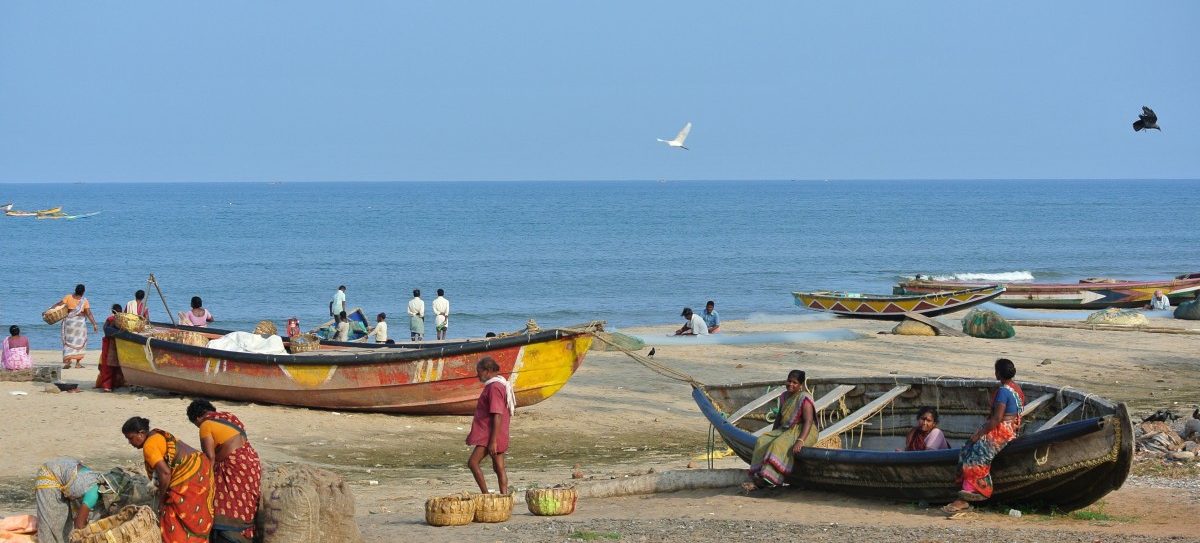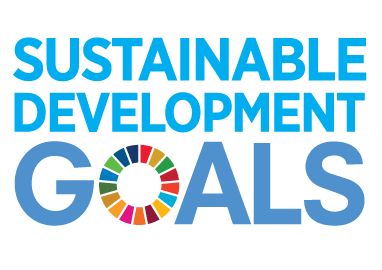
Image via PxHere. License: CC0 Public Domain
Climate impacts on the ocean don’t just hurt the environment – they also make it harder for us to achieve Sustainable Development Goals, which are meant to help us build a better and more sustainable future.
This was found in a new, comprehensive study that linked two major topics: how climate change is affecting the oceans, and how such climate impacts on the oceans affect people’s well-being, as defined by the Sustainable Development Goals (SDGs). Set by the United Nations in 2015, the SDGs are a group of internationally agreed-on goals that are meant to improve life for people globally. The goals – which include climate action, zero hunger, and gender equality – are intended to be met by 2030.

Gerald Singh. Credit: UBC IRES.
“We often think about the SDGs as stationary targets and assess our achievement of them as snapshots of ‘how far are we from the goals’. However, we live in a dynamic world, and addressing the SDGs in the context of global change requires an understanding of how these broad changes are affecting our likelihood of achieving the SDGs,” said Gerald Singh, one of the lead authors of the study, Postdoctoral Fellow at UBC’s Institute for the Oceans and Fisheries (IOF) and Institute for Resources and Sustainability (IRES), and Nereus Fellow.
By reviewing the latest scientific literature and consulting a wide range of experts worldwide, the researchers found that climate change not only impacts the environment – often negatively – but that the effects of climate change will probably impede our ability to improve people’s livelihoods and well-being. Climate impacts could forestall poverty reduction, diminish health, and prevent our ability to achieve inclusive and sustainable economic growth. Across all of the SDGs, climate impacts are expected to have the worst effect on the goal of eliminating hunger.
“We often think about the SDGs as stationary targets … [h]owever, we live in a dynamic world, and addressing the SDGs in the context of global change requires an understanding of how these broad changes are affecting our likelihood of achieving the SDGs,” said Gerald Singh.

Credit: United Nations.
In other words, climate change is not just an environmental problem, but one that inhibits our ability to tackle other social issues.
The study revealed that climate change is affecting the oceans in a variety of ways, both directly and indirectly, such as by increasing runoff rates and land-based pollution. Climate impacts on the ocean are also affecting its dependent human communities, for example, by reducing the availability of some seafood. All this indicates the importance of marine systems in achieving Sustainable Development Goals, most of which are adversely affected by climate changes to marine ecosystems, and the benefits people derive from these ecosystems, like food sources.

William Cheung
“The ocean provides us with food, regulates our climate, and is an essential part of the culture and identity of many people,” said Dr. William Cheung, a professor at IOF and Director of the Changing Oceans Research Unit (CORU), who was a senior author of the study. “Climate change is already hampering the ocean’s ability to provide these goods and services to us, and without mitigating greenhouse gas emission, it will be impossible for the world to achieve sustainable development.”
Although the researchers found that climate change had overwhelmingly negative consequences on our ability to achieve SDGs, they identified two goals that could be prioritized by governments, because they are the least affected by climate impacts and are an important means to achieve the other SDGs. These were changing global consumption and production patterns, and developing affordable clean energy systems.
In other words, climate change is not just an environmental problem, but one that inhibits our ability to tackle other social issues.
As important prerequisites to other SDGs, these two goals can help us achieve other goals while mitigating climate change itself. But the researchers say that urgent and effective action must be taken towards sustainable development, such as by reducing and adapting to climate impacts on marine systems that are relevant to achieving SDGs, in order to ensure SDGs are not just a “moving target” drifting further away from us. The longer we stall, the researchers say, the more distant these goals will become.
“The SDGs are aspirational and symbolic, but if they are to be substantial and meaningful we need to strategically act on them now or they will become too distant,” said Singh.
The paper “Climate impacts on the ocean are making the Sustainable Development Goals a moving target traveling away from us” was published in the journal People and Nature.
IOF Authors:
The authors involved in the study from UBC’s Institute for the Oceans and Fisheries are Gerald G. Singh, Joey Bernhardt, Andres M. Cisneros-Montemayor, Madeline Cashion, Pedro C. González-Espinosa, Vicky Lam, Gabriel Reygondeau and William Cheung.
Tag: Climate change, CORU, Faculty, food security, IOF postdoctoral fellows, Nereus Program, Sustainable Development Goals (SDG), William Cheung